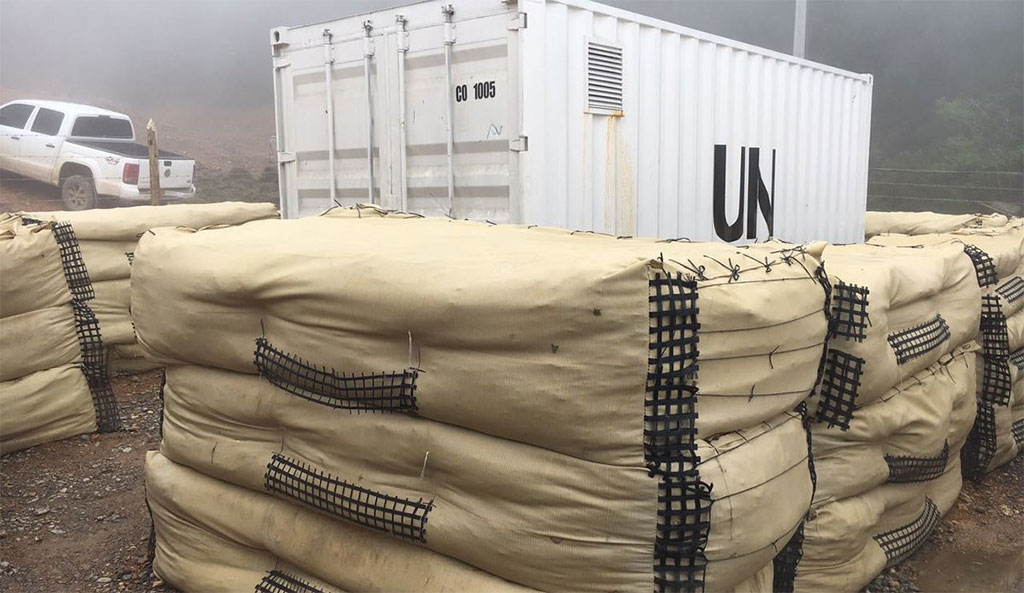53 years after its first combat, Colombia’s oldest and largest rebel group, the FARC, have completed its disarmament process, the United Nations announced Monday.
According to the United Nations, the FARC’s approximately 7,000 demobilized guerrillas have surrendered 7,132 arms.
The weapons are now stored in UN-controlled containers located in the 26 demobilization, disarmament and reintegration (DDR) camps where the guerrillas where the guerrillas have been staying since September last year.
President Juan Manuel Santos and FARC leader Rodrigo Londoño, known by his nom-de-guerre “Timochenko” are expected to attend a ceremony on Tuesday to celebrate the successful disarmament of the country’s longest-living guerrilla group.
The only weapons left in hands of FARC members are those in the hands of guards maintaining security in these camps. Also these weapons should be surrendered to the UN before the agreed deadline of August 1.
All other guerrillas that have handed in their weapons have received certificates, allowing them to take part in reintegration programs.
Apart from the disarmament of the guerrillas, the UN, the FARC and state forces have removed or detonated 77 of approximately 900 weapons caches hidden in the jungles and mountains of Colombia where the FARC used to be active, the international organization said.
Some 1,600 FARC militia members, not all of whom were armed, have also reported at the camp to receive a certificate they are now no longer a member of an illegal armed group.
Guerrillas who have deserted or militias members who have failed to report themselves will no longer be able to take part in the peace process and will be targeted by the Colombian security forces.
Of the FARC’s approximately 50 fronts, six have refused to take part in the peace process. The dissident groups are primarily active in the coca-rich south and southwest of the country.
These are the FARC dissident groups Colombia’s authorities must confront
With the full disarmament of the FARC’s guerrillas, Colombia’s peace process has successfully finished a historic phase of the country’s ongoing peace process that seeks an and to more than half a century of political violence that has left more than 265,000 Colombians dead, tens of thousands missing and 7 million displaced.
A 200-year history lesson to understand Colombia’s 52-year conflict
The peace process has been plagued by a number of delays, partly due to government failures to timely facilitate the disarmament and disinformation campaigns by the country’s hard-right opposition, which — like the FARC — is expected to respond for tens of thousands of human rights violations.
Additionally, the process has been stained by the ongoing assassination of social leaders and members of FARC members, and an apparent spoiler attack on a Bogota mall little over a week ago.
The following phase of the peace process includes a transitional justice tribunal that will call an unknown number of FARC guerrillas and militia members, 24,500 state officials and almost 13,000 private individuals and companies to respond for the tens of thousands of war crimes committed by the multiple parties during the armed conflict.




